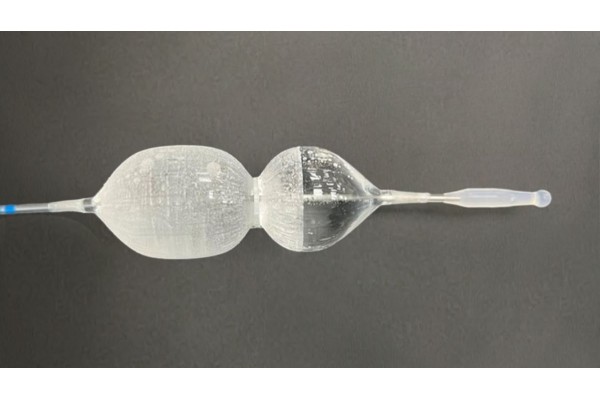Urotronic Wins FDA Approval to challenge Boston Scientific, Teleflex for Prostate Market
July 15, 2023
Source: drugdu
 280
280

Dive Brief
The U.S. Food and Drug Administration has approved Urotronic’s minimally invasive surgical treatment of symptoms linked to benign prostatic hyperplasia (BPH), the company announced Tuesday.
BPH is defined by the expansion of the prostate. As the organ grows, it can cause changes in the bladder that result in lower urinary tract symptoms such as leaking urine.
Urotronic’s newly approved Optilume BPH catheter system is designed to tackle the symptoms through mechanical dilation and the delivery of paclitaxel to stop the problem from recurring.
Dive Insight
Researchers studied the use of balloon dilation in BPH in the 1990s, but the technique failed to provide long-term benefits. Urotronic has tried to address that problem by pairing the immediate symptomatic relief provided by balloon dilation with localized delivery of paclitaxel, a drug that is already widely used in cardiovascular devices to prevent blood vessels from narrowing after angioplasty or stenting.
Urotronic won FDA approval for Optilume after running a clinical trial that compared the device to a sham treatment in 148 patients. The study linked Optilume to a significant reduction in the International Prostate Symptom Score (IPSS), a measure of lower urinary tract symptoms, through 12 months.
IPSS in the Optilume cohort fell from 23.4 at baseline to 10.9 after 12 months. That decline in the treatment cohort was statistically greater than the 4.8-point change in the sham control arm. The study also linked Optilume to an increase in peak urinary flow rate (Qmax), which doubled from 8.9 mL per second at baseline to 19.0 mL per second after 12 months. Qmax is a potential differentiator from other treatments.
“With the highest reported Qmax in BPH [minimally invasive surgical therapy] trials to date, Optilume BPH is the next generation of minimally invasive technology, creating a new drug device space among BPH therapies,” Steven Kaplan, professor of urology at the Icahn School of Medicine at Mount Sinai, said in a statement provided by Urotronic.
Other minimally invasive options include UroLift, which Teleflex added to its portfolio in its acquisition of NeoTract for $725 million upfront, and the Rezum System that Boston Scientific picked up in a takeover worth $306 million upfront.
Source: medTechDive.com
By editorRead more on
- The first subject has been dosed in the Phase I clinical trial of Yuandong Bio’s EP-0210 monoclonal antibody injection. February 10, 2026
- Clinical trial of recombinant herpes zoster ZFA01 adjuvant vaccine (CHO cells) approved February 10, 2026
- Heyu Pharmaceuticals’ FGFR4 inhibitor ipagoglottinib has received Fast Track designation from the FDA for the treatment of advanced HCC patients with FGF19 overexpression who have been treated with ICIs and mTKIs. February 10, 2026
- Sanofi’s “Rilzabrutinib” has been recognized as a Breakthrough Therapy in the United States and an Orphan Drug in Japan, and has applied for marketing approval in China. February 10, 2026
- Domestically developed blockbuster ADC approved for new indication February 10, 2026
your submission has already been received.
OK
Subscribe
Please enter a valid Email address!
Submit
The most relevant industry news & insight will be sent to you every two weeks.



